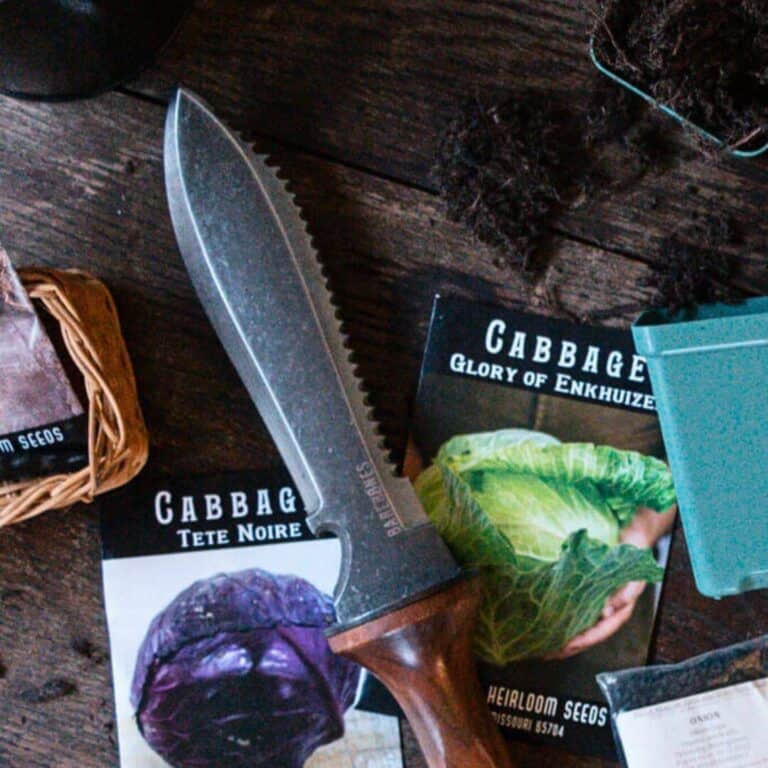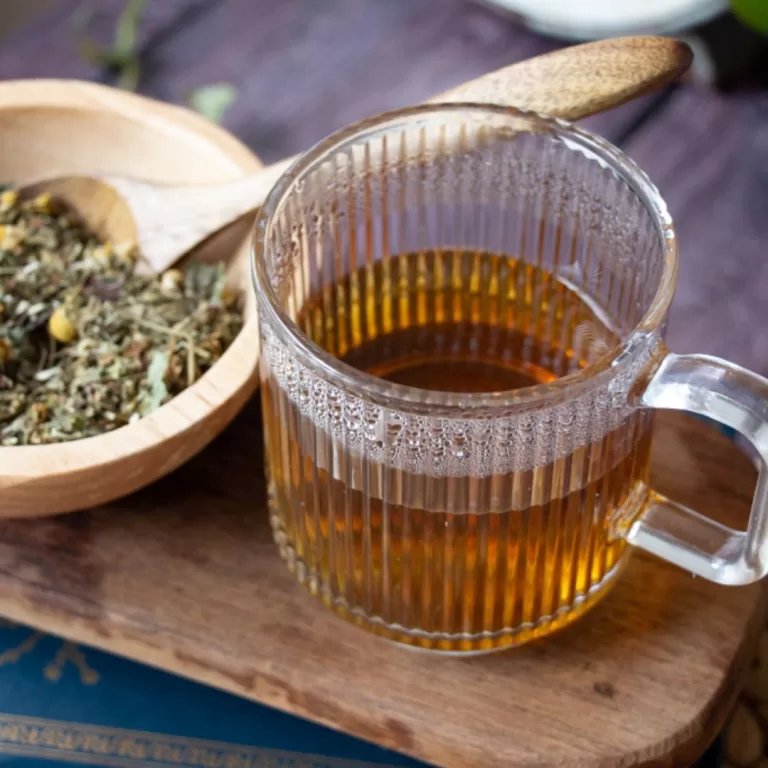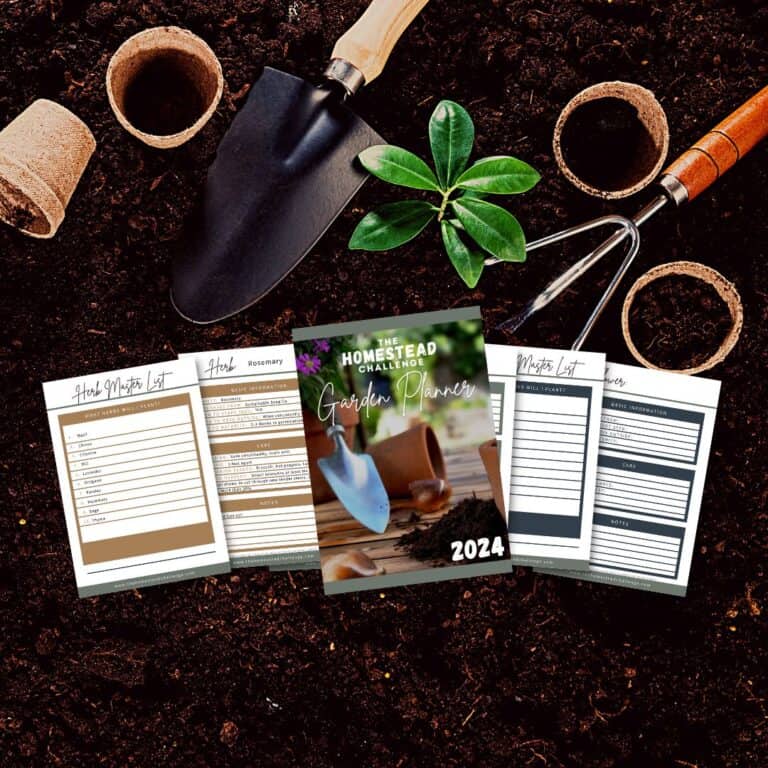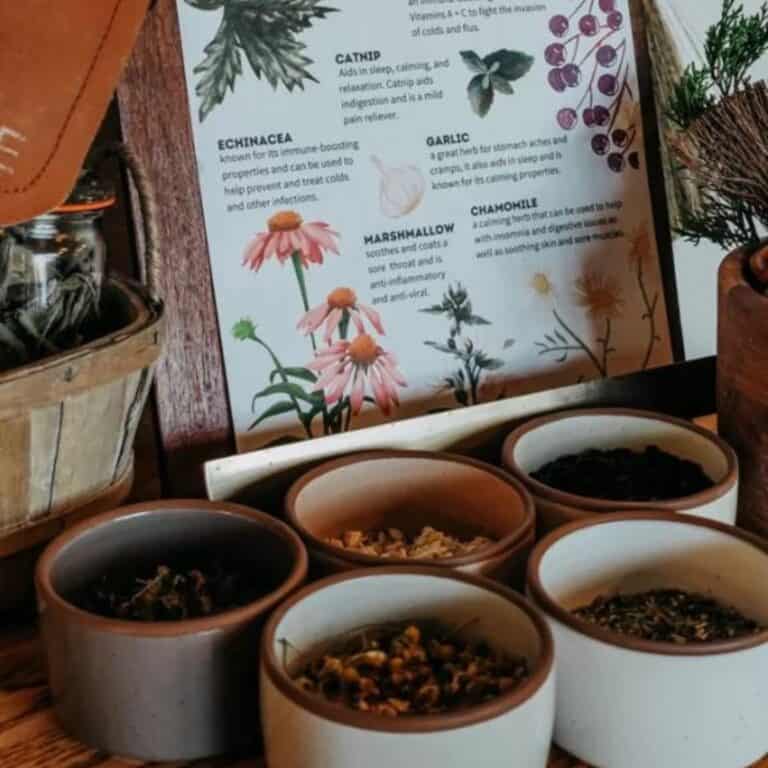Best Herbal Tea Recipe for Cold and Flu
Cold and flu season got you down? Or did it take out your whole family after your kid licked the toys at preschool (No? Just me?)? If you are looking for home remedies, I created the best herbal tea for cold and flu season to help boost immunity in times of impending flu doom.
This tea is packed with immune-boosting, anti-inflammatory, and soothing ingredients that will have you feeling like your old self in no time (or at least a little better). This is actually one of the most delicious teas out of all of my blends. So grab your favorite mug, snuggle up in a cozy blanket, and let’s whip up a batch of this magical brew.

Cold and flu season typically runs from late fall to early spring in most parts of the world and is caused by a variety of viruses that can spread from person to person through respiratory droplets (ick).
Both cold and flu are usually viral infections. The common cold is a major cause of illness during the colder months and can be caused by over 200 different viruses. While the symptoms of cold and flu can be similar, the flu tends to be more severe.
Common Cold and Flu Symptoms:
The common cold and flu share many symptoms, as they are both respiratory illnesses caused by viruses.
- Sore or scratchy throat
- Runny nose
- Stuffy nose
- Cough
- Fever (although not everyone with a cold will have a fever)
- Body aches and fatigue
- Headache
- Chills
- Sneezing
It is important to boost your immunity when you know you have been exposed, even before symptoms start! That’s why I blended this tea. It is for those times when I know the neighborhood is sick so it’s only a matter of days until it comes for us! I hope this blend brings you some comfort and fighting power during this cold and flu season.
Medical disclaimer: I am not a medical professional and I am not claiming that these herbs are a substitute for professional care. Always consult a professional for medical advice when starting natural remedies at home. These are just things that I use and love in my own home.
Herbal Cold and Flu Tea Recipe
My favorite place to buy herbs online is Starwest Botanicals due to their ethical sourcing and commitment to sustainability. Each of the links below is an affiliate link, where I make a small commission from your purchase, at no additional cost to you.
Ingredients:


Don’t have all these herbs? That is okay! Try a few at a time and create your own unique blend! Elderberry is a great natural remedy all on its own!
Optional additions: Adding local raw honey and lemon juice to the tea can help to enhance the flavor and provide additional health benefits. Honey is a natural antibacterial and can help to soothe a sore throat, and lemon is rich in vitamin C and can help to boost the immune system.
Fresh ginger would also be a great addition to add fire to a body to stimulate an immune response. Finally, a cinnamon stick would be my addition of choice for its taste and potential antiviral properties.
As an Amazon Associate, I earn from qualifying purchases. Please visit my privacy + disclosure page for more details.
Supplies:
How to Brew Herbal Tea
For detailed instructions on the methods for brewing herbal tea, check out my post: How to Brew Herbal Tea: Infusions and Decoctions. Because this tea uses elderberries, a decoction method would be best (as demonstrated below). However, for taste, I still prefer method 2, an infusion.
Instructions:
Recommended: 2TBSP Tea for 1.5 cups of water.
Decoction Instructions:
- Mix all of your herbs in a bowl and transfer to an airtight jar.
- Boil 1.5 cups filtered water.
- Add 2 TBSP of the tea mixture.
- Reduce heat, cover, and gently simmer for 15-20 minutes.
- After simmering, remove the pot from heat and strain the tea through a fine mesh strainer or cheesecloth.
- Serve the tea hot and enjoy!
Infusion Instructions:
- In a mixing bowl, combine all the dried herbs and stir to mix well. Store this loose-leaf tea in your half-pint jar.
- Measure out 2 tablespoons of the herbal tea blend and place it in a tea strainer or infuser.
- Bring 1.5 cups of water to a boil. Always use hot water that has been brought to a boil and then allowed to cool slightly. This ensures that the tea is brewed properly and that the flavors and properties of the herbs are extracted. Water that is too hot can damage the delicate compounds in the herbs, and water that is too cool may not extract all of the beneficial properties.
- Place the tea strainer or infuser in a mug and pour the hot water over it.
- Allow the tea to steep for 5-7 minutes. Always cover your mug when steeping to maintain all the herbal benefits.
- Remove the tea strainer or infuser from the mug and discard or compost the used herbs.
- You can add honey or lemon juice if you like.
- Enjoy your cold and flu tea hot. The steam and scent of the hot tea will add to the healing effect.
Dosage
It is recommended to consume no more than 3 cups of this herbal tea per day. Overconsumption of certain herbs can cause side effects, and it is important to follow the recommended dosage and consult with a healthcare provider if you have any concerns. I might rotate this with a plain chamomile tea to keep hydrated without overconsuming any one herb.
Both elderberry and echinacea work best at the onset of cold and flu and should not be taken for extended periods of time.
For detailed information on child dosage, check out this post on safe and effective herbs for kids.
Caffeine content – This herbal tea blend does not contain any caffeine, which makes it a great option for individuals who are sensitive to caffeine or who are looking for a caffeine-free alternative to traditional teas.
Storage
The tea blend can be stored in an airtight container in a cool, dry place for up to six months to maintain maximum freshness. It is important to store the tea away from direct sunlight, as exposure to light can cause the herbs to lose their potency.

Cold and Flu Tea Herbal Benefits
Echinacea
Echinacea has been traditionally used to boost the immune system and fight infections. It contains compounds called alkamides and polysaccharides that are thought to stimulate the immune system and reduce inflammation in the body.
Elderberry
Elderberry is another herb that is commonly used to treat colds and flu. It contains compounds called flavonoids, which have antioxidant and anti-inflammatory properties. Elderberry is thought to help boost the immune system and reduce the severity and duration of cold and flu symptoms. Some studies have shown that elderberry can help prevent the flu virus from replicating in the body.
Peppermint
Peppermint leaves contain soothing properties to help the inflamed body. It contains compounds called menthol and rosmarinic acid, which have anti-inflammatory and antimicrobial properties. Peppermint tea is commonly used to relieve symptoms of colds and flu, such as coughs, sore throats, and congestion.
Hibiscus
Hibiscus contains antioxidant properties, which help to protect the body from damage caused by free radicals. It also contains vitamin C, which is important for immune function. Hibiscus is thought to have antimicrobial properties, which can help fight off infections. As a bonus, it just tastes really good in tea and makes it a pretty pink color!
Mullein
Mullein has been traditionally used to treat respiratory problems. It contains compounds called saponins, which have expectorant properties and can help loosen mucus in the respiratory tract. Mullein also has anti-inflammatory properties and can help soothe a sore throat and reduce coughing.
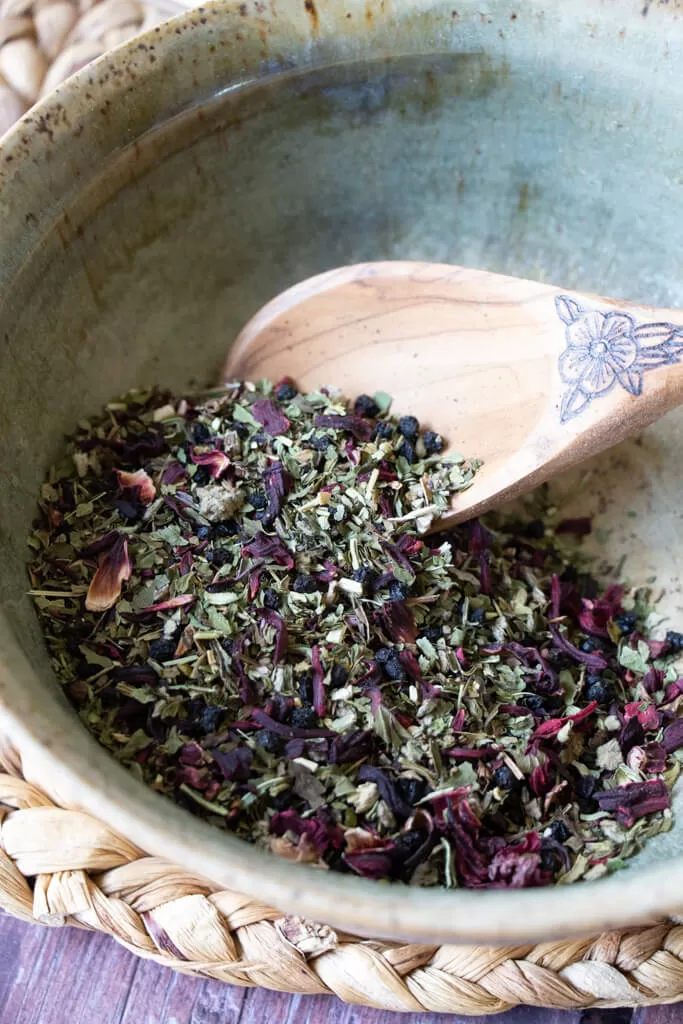
Just a reminder that herbal remedies can interact with conditions and other medications, so always do your own research or consult with a professional before using, just as you would with any over-the-counter medications.
While this tea probably won’t be a magical cure all for the inevitable cold and flu season, I do hope it provides you with some immune support and comfort! This paired with the ultimate home remedy, plenty of rest, is a great way to help to shorten the course of the flu. If you make this recipe snap a pic of that hot cup of tea and tag me on Instagram!
Healing Herbal Teas with The Homestead Challenge
This post is part of a tea series with healing herbal blends for common ailments. Check out the posts below for the best teas for each condition!
- How to Brew Herbal Tea: Infusions and Decoctions
- Allergy Tea
- Marshmallow Root Tea
- Nausea Tea
- Anxiety Tea
- Energy Tea
- Headache Tea
- Hangover Tea
- Mugwort Tea
Pin Herbal Cold and Flu Tea Recipe for Later!

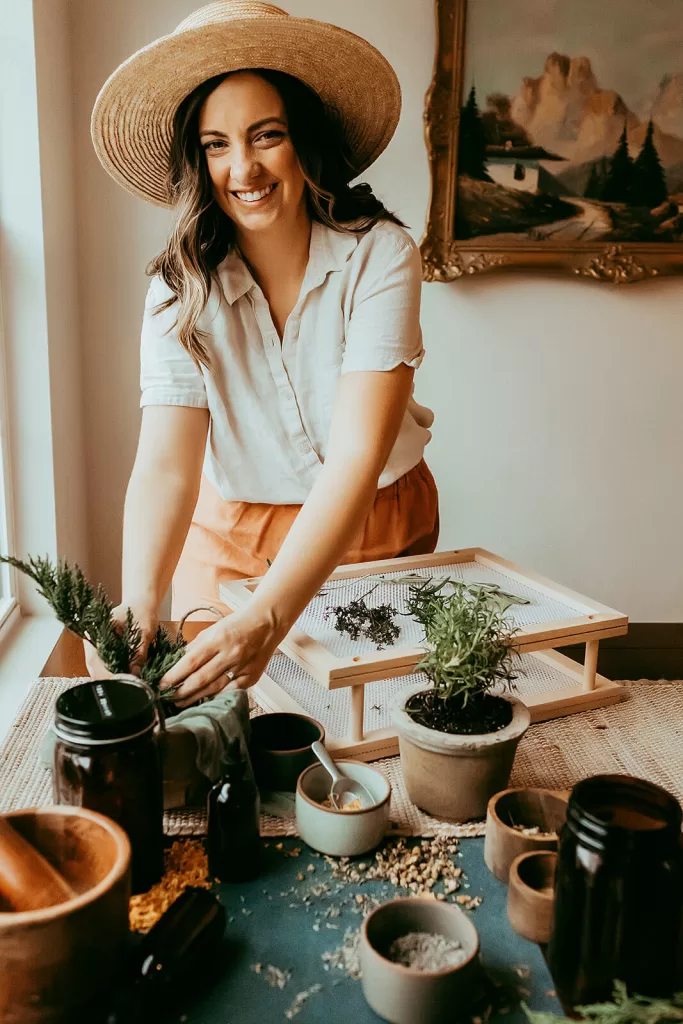
About the Author:
I’m Brittany, totally modern and mainstream turned crunchy mama!
Read more here about how I went from a totally incompetent cook and hyper-consumer to striving to live a more meaningful life from scratch.
I can’t wait to share my modern homesteading journey with you and I hope I inspire you to join along!










